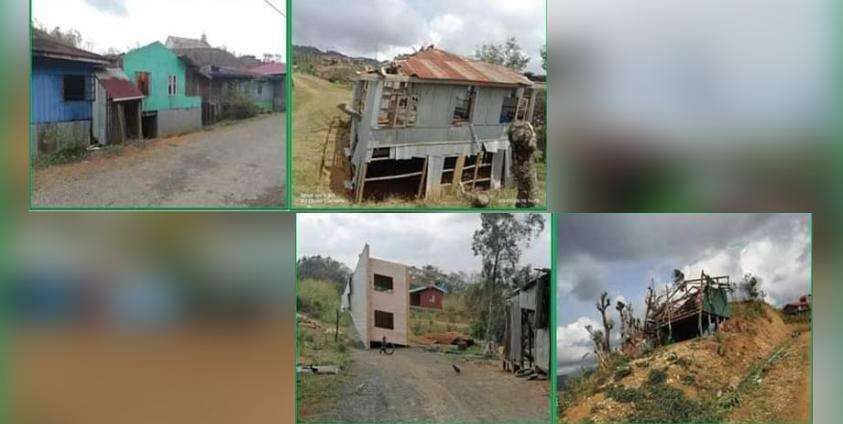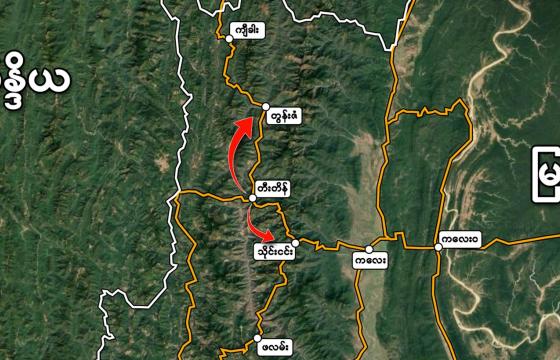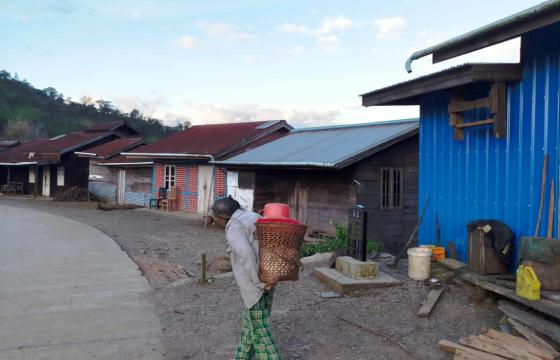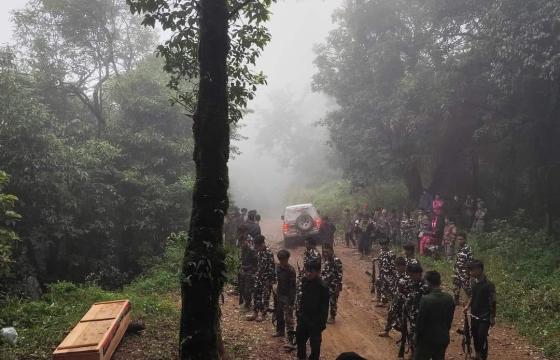In Chin State, the second hardest hit area by the destructive Cyclone Mocha in Myanmar, local communities affected by the storm continue to face an uphill struggle for food and shelter, as result of the regime’s refusal to allow donationsto reach some of the worst affected areas.
The weaponization of food distribution both in Rakhine and Chin states are been condemned by many Myanmar aid workers and NGOs.Criticism has also been levelled at UN Agencies especially WFP and OCHA, for tamely consenting to Military Council rules and consent for emergency aid distribution.
U Pyi Min, vice chairman of the Khumi Chin Ethnic Affairs Consultative Council, highlighted that the Chin State, being the second most severely affected area after Rakhine State, faces massive challenges in conducting rehabilitation work due to aid rt from international organizations like the United Nations (UN) not getting through to them.
U Pyi Min told Khonumthung News, "Considering Chin State's ranking as the second most affected state following Rakhine, it is crucial for UN agencies to provide assistance. With minimal local funding available across the nine townships in Chin State, the rehabilitation sector is in desperate need of international aid. I am skeptical about the effectiveness and productivity of the current efforts. While our local INGO is doing its best to support, the effectiveness is limited, and meeting the needs of the people remains extremely difficult.”
During the Cyclone Mocha on May 14th, extensive destruction was inflicted upon Chin State, with nearly 3000 buildings, including houses, religious structures, schools, and granaries, being damaged. Within Chin State, the townships of Matupi, Paletwa, Mindat, and Kanpetlet experienced the greatest impact from the cyclone.
"The National Unity Government (NUG) has made efforts to provide whatever limited support they could, including shelters. However, it is evident that the assistance falls short. The much-needed food and materials required for reconstruction are yet to reach Chin State”, U Pyi Min added.
The spokesperson of the Chin Defense Force - Matupi (CDF-Matupi) has reported that the residents of Matupi Township, which suffered significant damage from the cyclone, have displayed admirable self-reliance in repairing their own houses.
"The people affected by the storm in Matupi are receiving no support from outside at the moment. It is inspiring to witness the collaborative efforts of youth from the villages and local administrative organizations as they work together to repair the damaged houses to the best of their abilities. Furthermore, even residents from unaffected villages have volunteered for the restoration work, demonstrating the strong spirit of community and mutual assistance. Unfortunately, no other organizations have arrived yet to provide aid or assistance”, he said.
"Regrettably, both domestic and foreign organizations have yet to extend any support to the affected individuals. The severity of the house damage varies, with some being feasible to repair, while others pose nearly insurmountable challenges. Due to the impossibility of repairing their homes, certain locals have sought temporary refuge with their relatives”, an administrative official from Matupi also remarked.
According to the announcement from the Interim Chin National Consultative Council (ICNCC) on May 23rd, the devastating impact of Cyclone Mocha has resulted in a total of 2774 houses being either damaged or destroyed across Chin State. The breakdown by townships is as follows: Matupi with 1211, Mindat with 654, Paletwa with approximately 400, Kanpetlet with 211, Hakha with 105, Falam with around 100, Tedim with 51, and Thantlang with 41.
Furthermore, the destructive impact of Cyclone Mocha across Chin State has led to the destruction of various vital structures. Among them, 185 schools, 102 religious structures, 12 health facilities, 259 granaries, and 6 halls have been devastated. Tragically, the disaster has also claimed the lives of 50 cattle and 20 other livestock, adding to the immense loss suffered by the region.
The townships impacted by Cyclone Mocha are in urgent need of construction materials such as nails, metal roofs, tarpaulin sheets to facilitate the repair of damaged homes and infrastructure. Additionally, there is a critical requirement for basic necessities such as food and medicine to support the affected communities, ICNCC stated.







